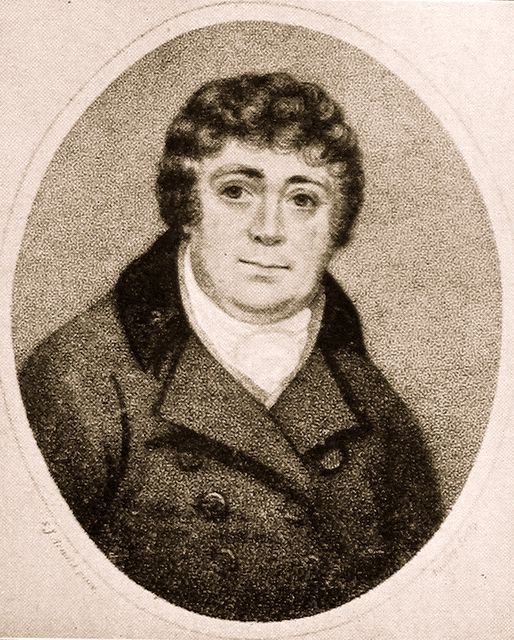Samuel Arnold (composer) on:
[Wikipedia]
[Google]
[Amazon]
 Samuel Arnold (10 August 1740 – 22 October 1802) was an
Samuel Arnold (10 August 1740 – 22 October 1802) was an
 *''The Maid of the Mill'' (1765)
*''
*''The Maid of the Mill'' (1765)
*''
"Composers: Samuel Arnold (1740 - 1802)" article
at naxos.com.
 Samuel Arnold (10 August 1740 – 22 October 1802) was an
Samuel Arnold (10 August 1740 – 22 October 1802) was an English
English usually refers to:
* English language
* English people
English may also refer to:
Peoples, culture, and language
* ''English'', an adjective for something of, from, or related to England
** English national ide ...
composer and organist
An organist is a musician who plays any type of organ. An organist may play solo organ works, play with an ensemble or orchestra, or accompany one or more singers or instrumental soloists. In addition, an organist may accompany congregational h ...
.
Arnold was born in London
London is the capital and List of urban areas in the United Kingdom, largest city of England and the United Kingdom, with a population of just under 9 million. It stands on the River Thames in south-east England at the head of a estuary dow ...
(his mother is said to have been Princess Amelia; his father was Thomas Arnold. He began writing music
Music is generally defined as the art of arranging sound to create some combination of form, harmony, melody, rhythm or otherwise expressive content. Exact definitions of music vary considerably around the world, though it is an aspe ...
for the theatre
Theatre or theater is a collaborative form of performing art that uses live performers, usually actors or actresses, to present the experience of a real or imagined event before a live audience in a specific place, often a stage. The perform ...
in about the year 1764. A few years later, he became the director of music at Marylebone Gardens
Marylebone Gardens or Marybone Gardens was a London pleasure garden sited in the grounds of the old manor house of Marylebone and frequented from the mid-17th century, when Marylebone was a village separated from London by fields and market ga ...
, for which he wrote much of his popular music
Popular music is music with wide appeal that is typically distributed to large audiences through the music industry. These forms and styles can be enjoyed and performed by people with little or no musical training.Popular Music. (2015). ''Fu ...
. In 1777 he worked for George Colman the Elder
George Colman (April 1732 – 14 August 1794) was an English dramatist and essayist, usually called "the Elder", and sometimes "George the First", to distinguish him from his son, George Colman the Younger. He also owned a theatre.
Early lif ...
at the Little Theatre, Haymarket. In 1783 he became organist
An organist is a musician who plays any type of organ. An organist may play solo organ works, play with an ensemble or orchestra, or accompany one or more singers or instrumental soloists. In addition, an organist may accompany congregational h ...
at the Chapel Royal and in 1793 he became the organist at Westminster Abbey
Westminster Abbey, formally titled the Collegiate Church of Saint Peter at Westminster, is an historic, mainly Gothic church in the City of Westminster, London, England, just to the west of the Palace of Westminster. It is one of the Unite ...
, where he was eventually buried. He also wrote the earliest version of Humpty Dumpty
Humpty Dumpty is a character in an English nursery rhyme, probably originally a riddle and one of the best known in the English-speaking world. He is typically portrayed as an anthropomorphic egg, though he is not explicitly described as such. ...
. He was a close friend and associate of Haydn
Franz Joseph Haydn ( , ; 31 March 173231 May 1809) was an Austrian composer of the Classical period. He was instrumental in the development of chamber music such as the string quartet and piano trio. His contributions to musical form have led ...
.
Works
Arnold's best-known works include: *''The Maid of the Mill'' (1765)
*''
*''The Maid of the Mill'' (1765)
*''Abimelech
Abimelech (also spelled Abimelek or Avimelech; ) was the generic name given to all Philistine kings in the Hebrew Bible from the time of Abraham through King David. In the Book of Judges, Abimelech, son of Gideon, of the Tribe of Manasseh, i ...
'' (1768)
*''The Prodigal Son'' (1773)
*Incidental music for '' Macbeth'' (1778)
*'' The Baron Kinkvervankotsdorsprakingatchdern'' (1781)
*''The Castle of Andalusia'' (1782)
*''Two to One'' (1784), libretto George Colman. Includes the song "Pensive I Mourn".
*''Turk and No Turk'' (1785)
* ''Inkle and Yarico
''Inkle and Yarico'' is a comic opera first staged in London, England, in August 1787, with music by Samuel Arnold and a libretto by George Colman the Younger.
Plot
Inkle, an English trader, is shipwrecked in the West Indies, and survives ...
'' (1787)
* ''Juvenile Amusements'' (1797)
He is also known for producing the first collected edition of the works of George Frideric Handel between 1787 and 1797, published in 180 parts. This was the most comprehensive collection of Handel's music prior to the appearance of the '' Händel-Gesellschaft'' edition in the next century.Winton Dean, ''The New Grove Handel''. NY: Norton, 1982, p. 116. "Composers: Samuel Arnold (1740 - 1802)" article
at naxos.com.
Bibliography
*References
External links
* * 1740 births 1802 deaths 18th-century British composers 18th-century male musicians 18th-century keyboardists 19th-century British composers 19th-century organists English classical composers English opera composers English classical organists English male classical composers British male organists Male opera composers Musicians from London House of Hanover Members of the Academy of Ancient Music Master of the Choristers at Westminster Abbey Burials at Westminster Abbey 19th-century British male musicians Male classical organists {{UK-composer-stub